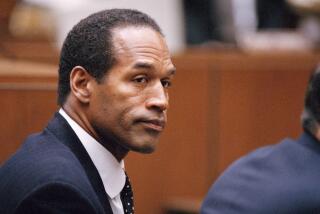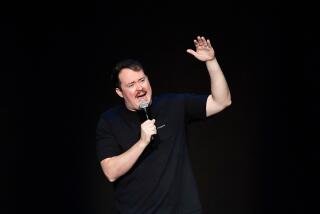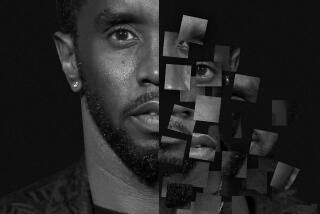Mr. Cosby, Stop Blaming the Victim
- Share via
Comedian Bill Cosby can’t seem to help himself. In his latest shoot-from-the-lip outburst against blacks, he claims they can’t read, write or speak coherent English. Black children, he said, are “going nowhere.” But he is as wrongheaded this time as he was when he made similar remarks in May.
Look, we can all agree that the gap between black and white students is too wide and that black-on-black crime is unacceptable. But Cosby -- a multimillionaire -- is way out of line in trying to pin these tired stereotypes on all poor black youth, without any acknowledgment that many young blacks and their parents are striving to achieve, and indeed are achieving, often against terrible odds.
Recent surveys by the U.S. Department of Education found that since 1975 black enrollment and SAT scores had increased in many school districts while the dropout rate had decreased. The number of blacks receiving bachelor’s and master’s degrees also has markedly increased. What’s more, despite Cosby’s snide comments, a 2002 national survey of student attitudes by the Minority Student Achievement Network, an Illinois-based educational advocacy group, found that black students were as motivated, studied as hard and were as serious about graduating as whites.
And despite Cosby’s charge that “the lower-economic people are not holding up their end,” even in the poorest of poor black neighborhoods countless numbers of children live in non- welfare-dependent, two-parent households in which the children do not sell drugs, join gangs, get pregnant in their teens or mumble in unintelligible babble.
Cosby should know these things. He has spent much of his career battling the clown, coon and mammy images of blacks in Hollywood. He has written books touting the achievements of young blacks. He has given tons of money to charitable and educational causes whose goal is to provide resources and create opportunities for the legions of young blacks who want to improve their lives.
Though Cosby is one of the best-known blacks to fan negative racial stereotypes, he’s hardly the only one. Despite much evidence to the contrary, many blacks -- and that apparently includes Jesse Jackson Sr., who nodded approvingly during Cosby’s latest tirade -- routinely trash, demean and ridicule themselves. They unthinkingly spin sordid tales of ghetto carjackers, gangbangers, drive-by shooters and dope dealers that supposedly turn every black community into a war zone.
Some blacks in the rap and hip-hop world are deeply complicit in fanning these stereotypes. The rap moguls have reaped kings’ ransoms peddling their music-video-cartoon version of the thug life; some, like Tupac Shakur, tragically fell victim to it when the violence turned real. The rebellious young of all colors who shell out billions and buy into this lifestyle are almost totally mindless of the social complexities and artistic and intellectual richness of the black experience.
Cosby’s remarks are not just offering grist for conservative talking heads; they blame the victim, giving credence to the idea that all the problems of poor blacks are self-inflicted. Many employers in a study published by the Brookings Institution, for instance, said that they wouldn’t hire young blacks because they believed they were lazier, more crime-prone and uneducated.
Instead of blaming the victim and encouraging old stereotypes, Cosby should be directing his ire at the root causes and demanding action. Where was he, for example, during the Democratic presidential primary debates? With the arguable exceptions of John Edwards and Howard Dean, the white Democratic presidential candidates were mute on issues such as urban investment, healthcare for the uninsured, fixing lousy inner-city public schools, racial profiling, affirmative action, the racial disparities in prison sentencing and racially biased drug laws.
Cosby didn’t invent the shopworn stereotype that poor blacks, and indeed the poor in general, are their own worst enemy. And few would deny that there are steps that black Americans should be taking within their own communities to help improve conditions. But Cosby is a recognized and endearing icon, and when he speaks, people listen. In this case, what they heard from him only reinforces negative beliefs about the black poor.
More to Read
The biggest entertainment stories
Get our big stories about Hollywood, film, television, music, arts, culture and more right in your inbox as soon as they publish.
You may occasionally receive promotional content from the Los Angeles Times.










